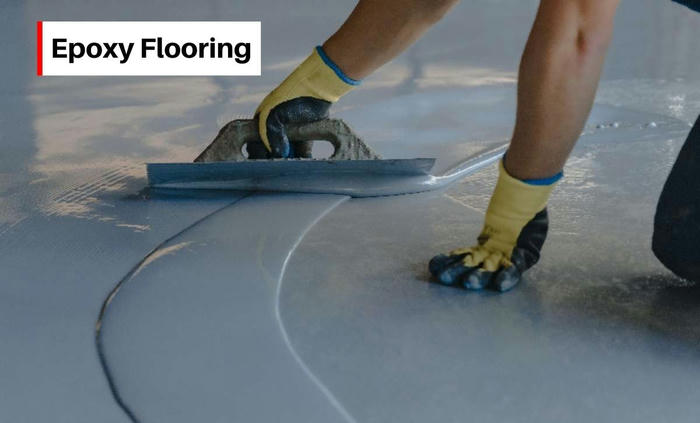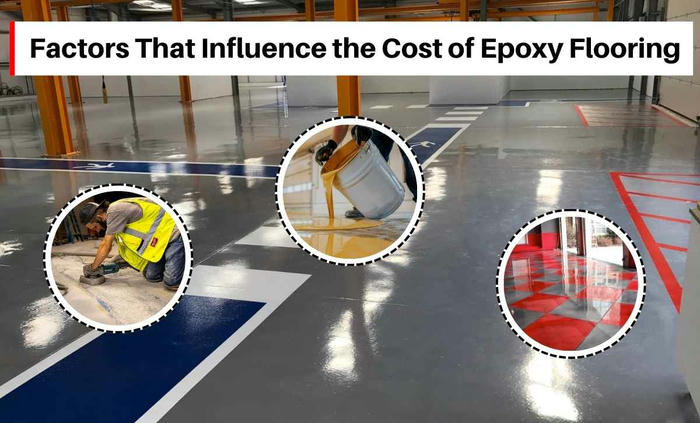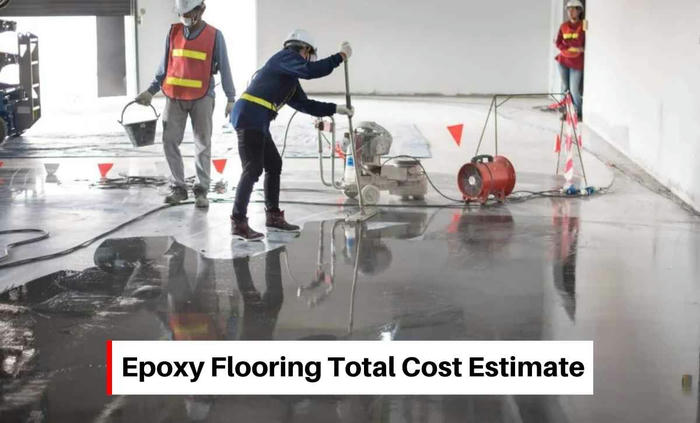Transforming Your Garage: The Real Cost of Epoxy Flooring
Your garage is more than just a place to park your car—it’s an extension of your home. If you’re looking to upgrade this space, epoxy flooring is a durable, stylish, and practical option. But how much does it cost to epoxy a garage floor? This article breaks down the expenses, factors that influence pricing, and why this investment is worth considering.
What is Epoxy Flooring?
Epoxy flooring is a coating made from a combination of resin and hardeners. When applied to a concrete garage floor, it creates a seamless, glossy, and highly durable surface. Epoxy floors are resistant to stains, chemicals, and wear, making them a popular choice for garages, workshops, and industrial spaces.

Factors That Influence the Cost of Epoxy Flooring
Size of the Garage
The larger the garage, the more materials and labor will be required. Costs are often calculated per square foot, so the total price will depend on the size of the space.
Condition of the Existing Floor
If your garage floor has cracks, stains, or uneven surfaces, additional preparation work will be needed. This can include cleaning, grinding, or patching the floor, which adds to the overall cost.
Type of Epoxy
There are different types of epoxy coatings, ranging from basic to high-end options. Standard epoxy is more affordable, while decorative or specialty epoxies (e.g., metallic or flake finishes) come at a higher price.
Labor Costs
Professional installation ensures a high-quality finish but comes with labor costs. DIY kits are available but may not provide the same level of durability or appearance.
Additional Features
Optional features like anti-slip additives, UV protection, or custom designs can increase the overall cost.

Breaking Down the Costs
Materials
The cost of epoxy materials typically ranges from $0.50 to $1.50 per square foot for basic coatings. High-end or decorative options can cost $2 to $5 per square foot or more.
Labor
Professional installation costs vary by region but generally range from $2 to $5 per square foot. This includes surface preparation, application, and finishing.
Surface Preparation
If your garage floor requires extensive preparation, such as grinding or crack repair, this can add $0.50 to $1.50 per square foot to the total cost.
Additional Features
Optional features like anti-slip additives or custom designs can add $0.50 to $2 per square foot, depending on the complexity.
Total Cost Estimate
For an average two-car garage (approximately 400 square feet), the total cost of epoxy flooring can range from $1,200 to $4,000 or more, depending on the factors mentioned above.

Benefits of Epoxy Flooring
Durability
Epoxy flooring is highly resistant to scratches, stains, and chemicals, making it ideal for garages. It can withstand heavy foot traffic, vehicle weight, and accidental spills.
Easy Maintenance
Epoxy floors are easy to clean and require minimal maintenance. A simple sweep and occasional mopping are usually enough to keep them looking new.
Aesthetic Appeal
With a wide range of colors, finishes, and designs, epoxy flooring can transform your garage into a stylish and functional space. It adds a polished, professional look to any area.
Increased Home Value
A well-maintained epoxy floor can enhance the overall value of your home. It’s an attractive feature for potential buyers who appreciate durability and aesthetics.
Safety
Anti-slip additives can be mixed into the epoxy to reduce the risk of slips and falls, making your garage safer for you and your family.
DIY vs. Professional Installation
DIY Epoxy Kits
DIY epoxy kits are available at home improvement stores and typically cost $50 to $200, depending on the size of the garage. While these kits are more affordable, they require careful preparation and application. Mistakes can lead to uneven coatings or premature wear.
Professional Installation
Hiring a professional ensures a high-quality finish and long-lasting results. Professionals have the tools, expertise, and experience to handle surface preparation, application, and finishing. While it’s a higher upfront cost, it can save you time and money in the long run.
{{ resize_image(path="/living
